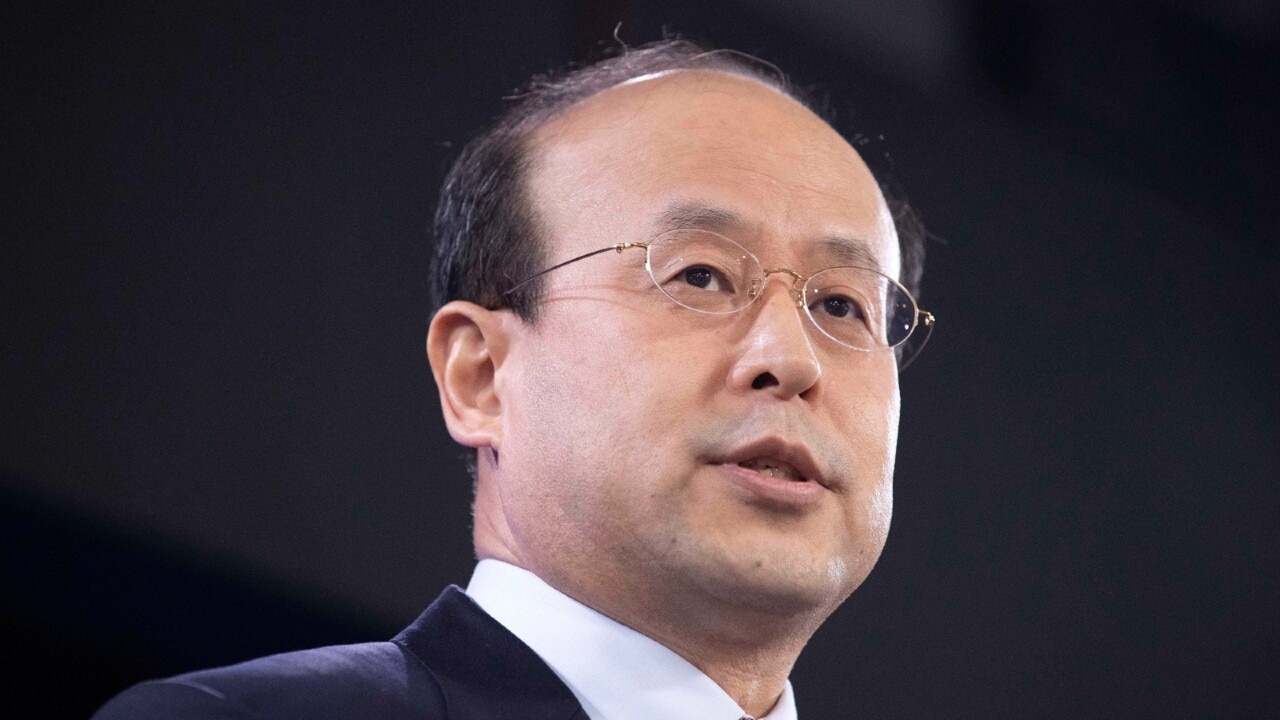
At one level, the ambassador is on a charm offensive. The election of the Albanese government offered a chance to reset the relationship and encouraging early moves had been made, the ambassador said. But there was a need for further concrete action.
All Australia had to do was a few simple things: stop criticism of China for its well-justified actions against Taiwan and Japan; lift restrictions on Huawei and other Chinese companies; accept the imprisonment, isolation and secret trial of Australian citizens in China as a perfectly normal part of the Chinese judicial process; work to establish a positive image of China in Australia; accept that the one-China, two-systems experiment in Hong Kong is a tremendous success now that China has solved a few “loopholes” in its implementation; and half a dozen similar things.
In other words, if we simply capitulate on all of Beijing’s demands, we can have a happy life, or, to put it another way: tremble and obey.
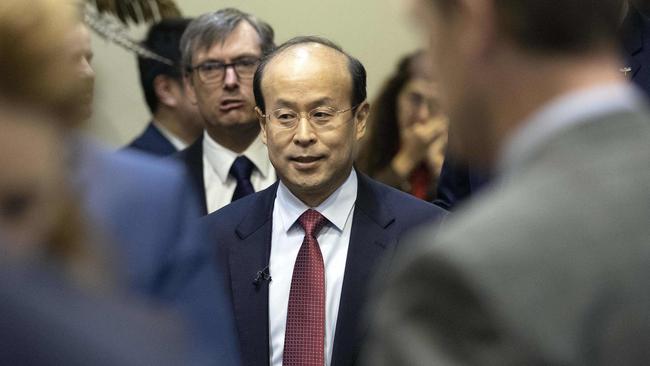
On all the issues of substance, the ambassador restated the maximal, unreasonable position of the Chinese Communist Party government in Beijing.
Yes, Beijing reserved the right to use force, or “all means necessary”, to take control of Taiwan.
Don’t the 23 million Taiwanese have any say at all regarding their future?
No, the ambassador said, Taiwan’s future will be “decided by the 1.4 billion people of China”. In truth, the 1.4 billion people of China get to decide absolutely nothing. The ambassador meant the CCP would decide Taiwan’s future.
But the biggest fiction of all was the framework the ambassador set for the speech at the beginning. China, he claimed, is an upholder of the international system, not a challenger to it.
The press gallery’s questions systematically exposed the hollowness of this proposition. This was one of the press gallery’s finest moments. The questions were polite but insistent, forensic, to the point, unintimidated but also unprovoked.
To list a few of the issues on which the ambassador restated Beijing’s relentless aggression. The South China Sea. Against international law, Beijing has occupied and militarised islands and territories to which it has no legitimate claim, having previously promised that it would never militarise these territories. They belong to us, the ambassador asserted.
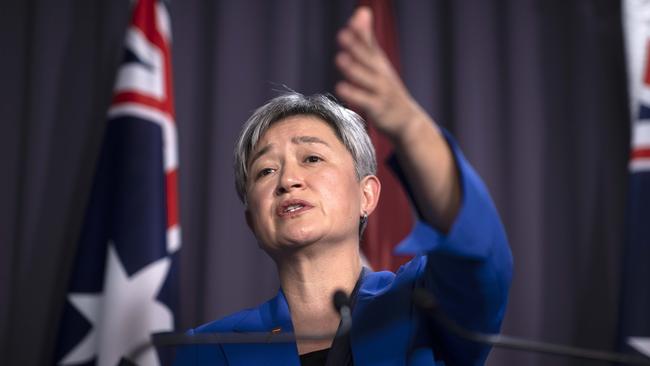
Beijing harassed and endangered an Australian plane flying in international air space in the South China Sea. Beijing was right to do so, the ambassador said.
The Taiwanese had false perspectives on China and these would be corrected after it came under mainland rule, whether you call it re-education or something else.
In the finest tradition of communist doublethink, and indeed doublespeak, the ambassador was happy to claim that black was right.
Even the rulers of Taiwan, he said, think of Taiwanese as Chinese and Taiwan as part of China and want reunification. Polls showing the vast majority of Taiwanese don’t want reunification were just misleading, he said.
So take a few steps back and what do we see?
The Albanese government is in just about as much bad odour with Beijing as the Morrison government was.
According to the Chinese embassy in Canberra, Foreign Minister Penny Wong has breached the UN Charter by criticising China over Taiwan, because this is an internal Chinese matter.
This all establishes definitively that it was not the rhetoric or tone of voice of the Morrison government that caused troubles with Beijing, but profound contradictions between Australian interests and values and the CCP‘s interest and values.
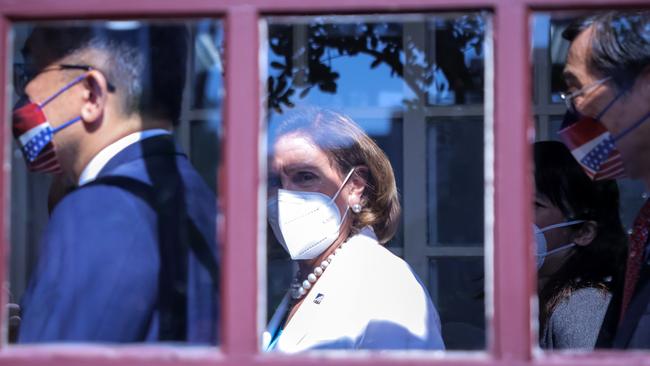
That’s not to say the Morrison government did not frequently get the rhetoric wrong. Talking about war was foolish and irresponsible. Demanding an inquiry into the origins of Covid achieved nothing and cost a lot.
But these tactical mistakes were not the heart of the matter.
The Albanese government is right to try to stabilise the relationship with Beijing, but it is also right not to negotiate away a single Australian interest. A good relationship would be a positively bad thing if that meant Canberra sold out key interests, or was prevented from speaking calmly but honestly to the Australian people.
Two final thoughts. Beijing has cut off communication with Washington over climate change in response to the Pelosi visit to Taiwan. Combined with the long cavalcade of agreements Beijing has breached – how can it apply trade sanctions to a nation like Australia with which it has a free-trade agreement? – this demonstrates the futility of placing serious climate change hopes in Beijing’s word.
Beijing is not committed to battling climate change, it’s committed to using climate change as a mechanism for gaining concessions from the West.
And this: when Beijing decides to start an actual deadly military operation against Taiwan, it will probably initially disguise this as an exercise, just like the ones going on right now.
Nothing in the ambassador’s words belies the danger of this reality.



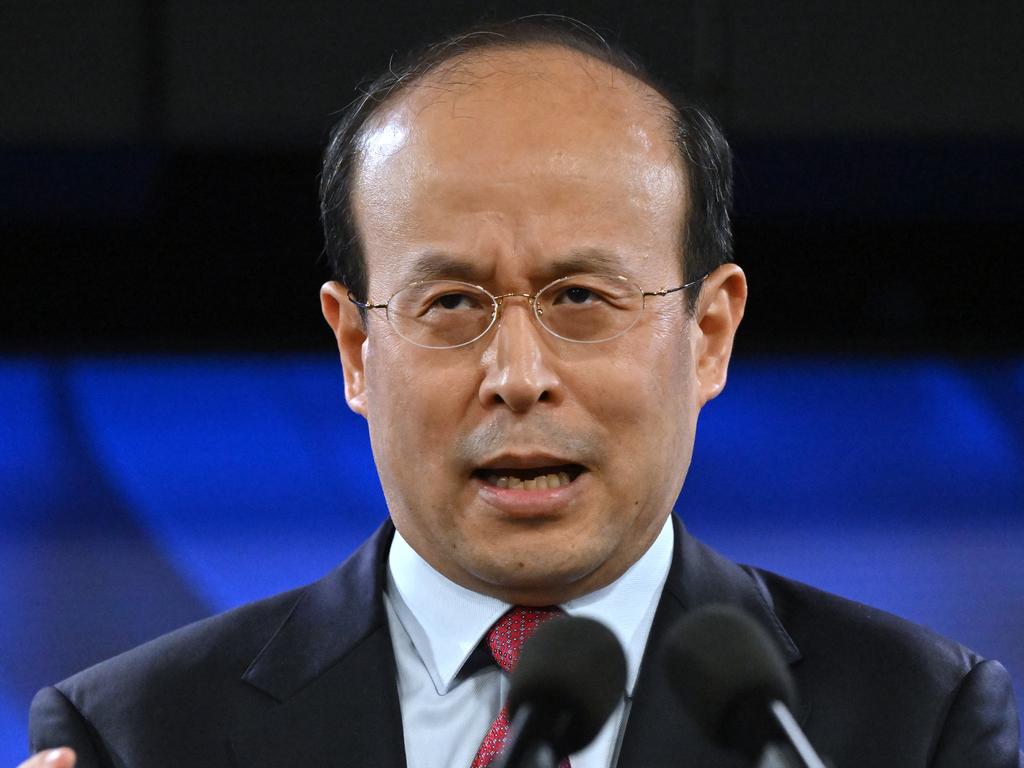


The speech by the Chinese ambassador, Xiao Qian, was full of menace and threat, lightly disguised by an emollient diplomatic tone.